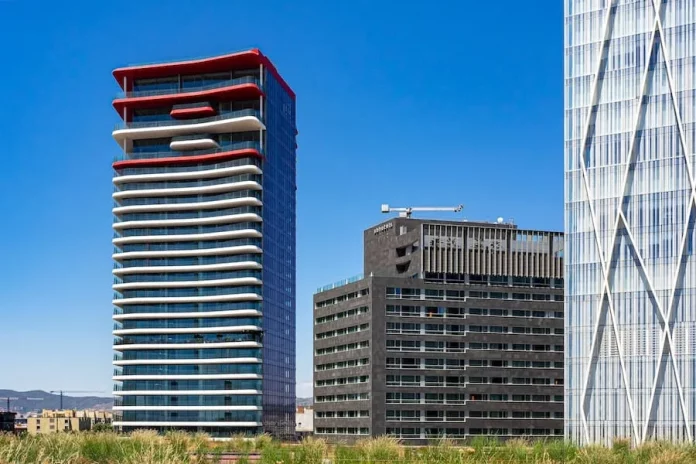There are several risks and strategies that developers and property owners should be aware of when developing commercial real estate properties. By being aware of the risks, they can increase the chances of success for their development projects.
Risks Associated With Commercial Real Estate Development
Commercial real estate development is not without its risks. Developing commercial real estate projects requires careful consideration of these risk factors. Even a single mistake can end in immense financial losses and impact the success of the project. Employing the right risk management strategies can ensure better returns.
Construction Risks
Most corporate real estate developers and construction managers understand they must consider construction risks. They include permit delays, legal issues, and erratic changes in contractor performance. The nature and degree of the construction risks of a rental property can vary depending on the specific location, type of property, and other factors.
The cost of construction materials and labor can fluctuate over time, not just in Colorado Springs but in any other major city like Boulder, Fort Collins or Denver. As a result, they must also allocate a contingency budget to account for cost overruns. To overcome the risks and make best decisions, investors consult the experts. The Evernest rental property in Colorado Springs, Fort Collins, Denver and other major areas in Colorado is known for its unparalleled expertise in the field of property advisory. Whether you are buying or selling a rental property, you should seek professional advice
Location Risks
Even if you mitigate the risks associated with construction, poor location choices can lead to an array of issues. They range from significantly decreased customer interest to safety hazards. Location risks can also include natural disasters, adverse weather conditions, access to resources, and uncertainties that can arise from the location.
Credit Risks
Credit risks have no bearing whatsoever on construction risks and location risks. This risk refers to the risks that a developer or lender may face if the borrower is unable to repay the loan or meet the terms of the loan agreement. These risks are changes in market conditions, the borrower’s financial health, and the performance of the property.
Regulatory Risks
Regulatory risks refer to the risks that a developer may face due to changes in government regulations or policies that can impact feasibility or profitability. These risks can arise at the local, state, or federal level. They include changes to zoning laws, building codes, environmental regulations, and other requirements.
Interest Rate Risks
Interest rate risks associated with commercial real estate refer to the risks that a developer may face due to changes in interest rates that can impact the project cost. Interest rates can impact a developer’s ability to secure financing for a project, as well as the profitability of a project once it is completed.
Strategies For Commercial Real Estate Development
By paying close attention to the ongoing trends and identifying the target market, developers and property owners can stay ahead of the curve. For that, they need to determine the level of control they need and compare the risks versus rewards. And then plan for success by hiring professionals and putting systems in place.
Pay Close Attention To Ongoing Trends
Developers and property owners should pay close attention to several ongoing trends in the commercial real estate development industry to stay competitive and successful. Some of these trends include sustainability, technology, coworking, mixed-use development, and urbanization.
Determine How Much Control You Want Over Your Property
Your experience level, availability, and project goals would determine how much control you want to have over your property. If you have a specific vision for the project, you may want to have full control. On the other hand, if you have other commitments, you may have to delegate some or all tasks to a manager.
Determine Your Risk Vs. Reward Tolerance
Make a list of all the potential risks associated with the project. Determine the likelihood that each risk will occur, and consider the potential impact on the project if it does. Consider your risk tolerance and how much risk you are comfortable taking on. Evaluate the potential rewards. Then compare the risks and rewards.
Identify The Target Market
Consider the demographics, income level, and other characteristics of the surrounding area to get a sense of the potential market. Determine the type of property, research market trends, and analyze the competition. Then think about the type of tenant or buyer you are looking to attract, which will help you focus your marketing efforts.
Plan For Success
Carefully plan and manage your budget and schedule to ensure that the project stays on track and within budget. Engage experienced professionals, such as architects, engineers, and contractors, to help ensure that the project is completed to a high standard. Develop a marketing plan to effectively promote the property to potential tenants or buyers. Put systems in place to manage and maintain the property effectively to ensure its long-term success.
Conclusion
Developers should consider the unique needs of their stakeholders and develop strategies to mitigate risks associated with commercial real estate development. With the right foresight and caution, they can have the right risk management strategies in place. This will ensure the successful completion of the project, opening investment opportunities with better returns and long-term profitability.












